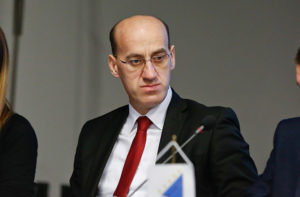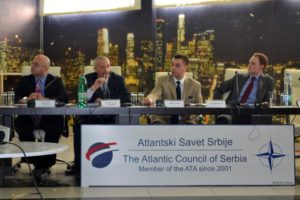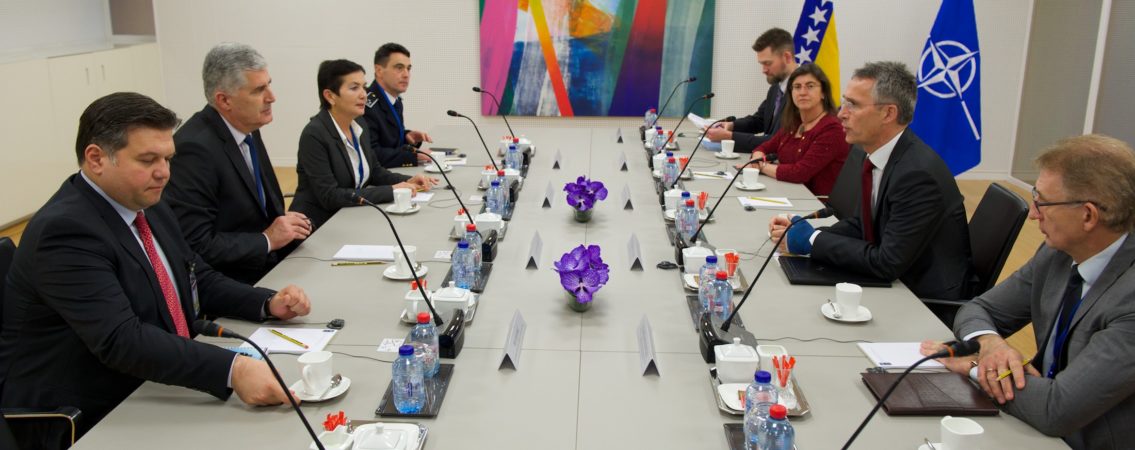The lawmakers of Bosnia Serb have approved a non-binding resolution which opposes the member of the country in NATO as a way of keeping Bosnia at bay from the alliance of the Western military. The parliament which is made up of 83-members approved the resolution and insists Bosnia’s military neutrality. They also decided that the nation will coordinate future decisions in Serbia.

The major opposition to NATO membership are pro-Russia Serbs in Bosnia because of NATO’s bombing of the country in 1990 – the action which ended the 1992 to 1995 war. The neighboring Serbia also shares the anti-NATO sentiment. On the other hand, Croats and Bosniaks who make up to sixty-five population of the entire Bosnia’s population favor NATO’s membership.
Although a peace deal was reached which ended the war in Bosnia, but it divided the country two autonomous parts namely; the Croats and Bosniaks backed West and the Russian-backed Serb. Each of the part has its presidency, parliament, and police. However, the two parts are connected by institutions at state-level like the tripartite presidency and a parliament that must reach a compromise before a pronouncement can be possible.

Nearly eight years ago, the two parts reached a consensus regards NATO membership and Bosnia applied to be a part of the alliance. As of then, NATO offered a membership plan surrounded by certain conditions which was an obstacle to full membership. Unsatisfied with the conditions, Bosnia Serb politicians have long ago shifted their grounds against activation of full membership – a move many believe was to please Russia.
Since breaking away from Yugoslavia, the political and social climate of Bosnia and Herzegovina has remained a little volatile prompting the EU to sustain its ALTHEA Operation in the region. In a recent interview with Ramiz Salkic, a top Bosniak political leader, he said,
“The declaration is more dangerous than it seems. It underlined how Bosnian Serb leaders are acting at the instructions of a foreign power that wants to destabilize the Balkans in order to strengthen its foothold in Europe.”
Source: Atlanticbb
Serbians are in a dicey situation because they would not want to lose Western alliance by openly aligning themselves with Russia. On the other hand, they would not want to be a part of NATO based on past sentiments, hence, the neutrality. Reacting to the situation, an expert on Moscow’s policy and Balkan correspondent for Kommersant newspaper, Genady Sysoev, said,
“Serbia cannot entirely turn to NATO, it will maintain the maximum level of cooperation with it, without changing its (membership) status. Serbia cannot turn to Russia because… no Serbian leadership would risk losing Western investment and aid.”
Source: Reuters

Only a few Balkan countries are not on the 28-member NATO nations and Serbia happens to be one of them. In 1990, NATO carried out series of bombing campaign to chase Serbian forces away from Kosovo. This is largely the reason why NATO has remained unpopular among Serbs.
Kosovo (former southern province of Serbs) still receive Alliance peacekeepers even though it declared independence in 2008. Belgrade sees the declaration as illegal. Even though Serbia claims military neutrality, it joined NATO’s Partnership for Peace program. Belgrade in 2015 signed to be part of the Individual Partnership Action Plan. This is the highest level of alliance between NATO and non-member countries.
Meanwhile, there is a report on Sputnik that suggests that a team of lawyers from within and outside the country (India, China, and Russia) are being formed, led by Srdjan Aleksic to sue NATO countries for material and non-material damage Serbia citizens suffered during the 1999 bombing. Aleksic statement on Sputnik reads;
“We will sue NATO member-states, participants in the 1999 aggression on the Federal Republic of Yugoslavia. The 20 countries that directly or indirectly took part in the aggression. The lawsuit will be filed against individual member-states of the alliance.”
Source: B92
According to Aleksic, the lawsuit will focus on NATO’s use of uranium during the attack. The incident he claims has resulted in the rise in the number of cancer diagnosis (2.5 percent of Serbia’s population is diagnosed annually).

